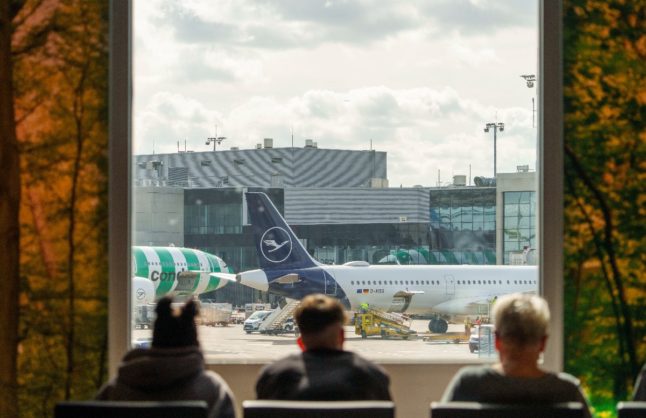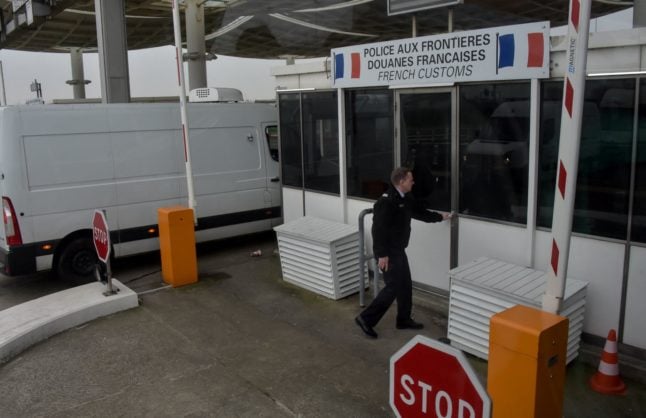Air travel from Germany is getting more expensive.
That’s because, from May 1st, the Luftverkehrsabgabe or ‘aviation taxation and subsidies’ air traffic tax is being hiked by around 20 percent. The extra costs will likely be passed onto customers.
Here are the most important points.
What is the air traffic tax – and why is it being raised?
Since its introduction in 2011, the air traffic tax – also known as the ticket tax or air traffic levy – has generated high revenues for the state. Recent figures show that it brought the government almost €1.2 billion revenue in 2022 and €1.6 billion in 2023.
The move to raise the ticket tax from May is part of German government measures to save money following a ruling on spending by the Federal Constitutional Court last year. The government expects additional annual tax revenue of between €400 and €580 million in the coming years from raising the ticket tax.
READ ALSO: Five budget cuts set to impact people in Germany in 2024
How much is it going up?
All flight departures from a German airport are taxed. The tax currently costs between €13.03 and €56.43 per ticket depending on the destination. These costs are ultimately passed on to passengers.
From May 1st 2024, the tax rates will be between €15.53 and €70.83 per ticket – depending on the destination.
Here are the additional costs at a glance:
- Up to 2,500 kilometres – for flights within Germany or to other EU countries, the tax rises to €15.53 per person and journey from €13.03
- Up to 6,000 kilometres – on medium-haul flights, the ticket tax increases to €39.34 from €33.01
- More than 6,000 kilometres – for longer flights over 6,000 kilometres, the tax rises to €70.83 from €59.43
Only flight tickets for children under the age of two – provided they have not been allocated their own seat – and flights for official, military or medical purposes are exempt from the tax.
READ ALSO: Everything that changes in Germany in May 2024
Does this mean I should buy a ticket to fly before May?
It could make sense to book a flight before May 1st if you are planning a trip or holiday abroad. Those who buy a flight before the tax is increased will pay the lower tax – even if the flight is later in the year.
There is still a question mark over whether the tax can be backdated on the pre-paid flight ticket. However, according to German business outlet Handelsblatt, it would be legally difficult for airlines to demand an increased tax retrospectively.
German travel outlet Reisereporter said this is one reason “why the airlines have not yet informed air travellers of the planned increase in ticket tax”.
What are airlines saying?
They aren’t happy about the hike, mostly because they already feel bogged down by fees and operating costs at German airports.
The airline association ‘Barig’ has warned that charges at airports and in airspace are already high. According to the Federal Association of the German Air Transport Industry, the departure of an Airbus A320 in Germany costs around €4,000 in government fees, while in Spain, France and Poland it is between €200 and €1,500. These costs are generally passed onto customers, making buying tickets from Germany more expensive than other places.
The effects of the increased ticket tax will be most noticeable for low-cost airlines offering budget flights.
A spokesperson from EasyJet recently told The Local that it was “disappointed with the increase of the passenger tax”, and that the “cost increase will result in higher fares for consumers and damage Germany’s connectivity”.
READ ALSO: ‘Germany lacks a sensible airline policy’: Is budget air travel on the decline?
Meanwhile, the aviation industry is concerned that air traffic in Germany is lagging behind other European countries and is recovering at a slower pace since the pandemic. According to the German Aviation Association BDL, around 136.2 million seats will be offered on flights in Germany from April to September 2024. This is six per cent more than in 2023, but only 87 per cent of the number of seats available before the pandemic (2019).
In the rest of Europe supply is expected to rise above the pre-pandemic level.



 Please whitelist us to continue reading.
Please whitelist us to continue reading.
This govt is just a walking disaster with such disastrous policies (domestic or foreign) and uncontrolled spending. Housing is unaffordable, energy costs are high, industries are coming apart, food prices off the roof and now travels going …
Anyways everywhere more tax more tax